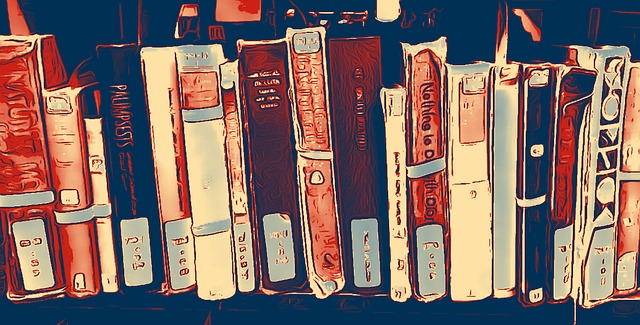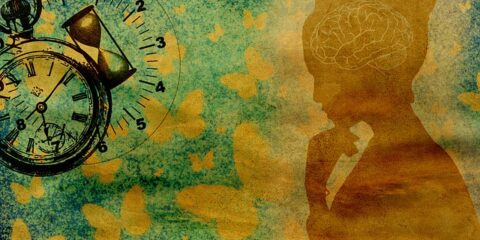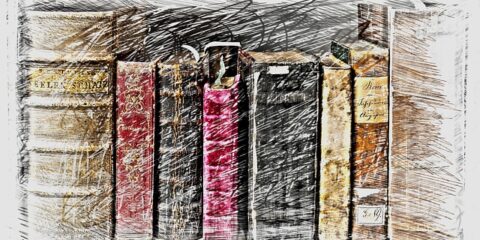| order | Author’s name | Book name | explain |
| 1 | yourself | The Bible | It is the key to understanding western culture! As the official classic of Christianity, its most important theme is the man. |
| 2 | yourself | The Koran | Islamic classics. In terms of its conquest of the secular world, it is more powerful than any miracle. |
| 3 | Newton | Mathematical principles of natural philosophy | Without Newton, there would be no modern science. Newton showed for the first time that man can see the mysteries of the world like God. This thought is unprecedented in the history of thought. |
| 4 | Darwin | Origin of species | Darwin’s greatness lies in finding changes in things that seem unchanged and relationships in things that seem unconnected. |
| 5 | Marx and Engels | “Communist Manifesto” | This is a magnificent work. At the same time, it is a theoretical work with profound thoughts. The combination of the two has caused its extraordinary influence. It is the “Bible of communism”, which has really influenced the thoughts and actions of millions of people. |
| 6 | Carson | Silent Spring | Like the principle of population, “Silent Spring” is a warning work for human beings to put forward serious warnings about their living conditions. More than 40 years after its publication, “environment” has become one of the most popular terms. |
| 7 | Malthus | principles of population | For two centuries, Malthus could be said to have been attacked to pieces. However, even if his every sentence and every piece of data is wrong, his spiritual essence has always been brilliantly confirmed. |
| 8 | Adam Smith | The Wealth of Nations | Using scientific methods to study the operation law of the economic system, Smith found the main contradiction in the operation of any era and any society – fairness, and efficiency. |
| 9 | Euclid | “The Geometry Original,” | Apart from the Bible, there is no other work that so many people read, study, and study. It is the original geometry that turns mathematics into pure mathematics divorced from reality and plays an irreplaceable role in modern science. |
| 10 | Freud | Interpretation of Dreams | The dream is one of the most common psychological phenomena and one of the sources of various superstitions and predictions. Freud’s main merit lies in his rational study of dreams as an object and his epoch-making discovery – the subconscious. Freud pointed out that man is not the master of his own behavior and spirit. He is largely controlled by the subconscious mind. |
| 11 | M. Weber | The Protestant Ethics and the Spirit of Capitalism | Max Weber is the greatest social scientist of the 20th century. In a sense, he can be compared to Marx. Marx focused on the economic foundation, while Weber emphasized the role of ideology, especially religion. In a society with a one-sided emphasis on competition, survival of the fittest, and intrigue, how difficult it is to establish rational economic ethics – honesty, trust, responsibility, and reciprocity. This is the significance of Weber’s Protestant ethics. |
| 12 | Maxwell | the general theory of electromagnetism | Maxwell’s electromagnetic theory is not only a major breakthrough and perfect synthesis of Physical Science in theory, but also produces amazing results in technology. On the one hand, electrify the whole civilized society through Electrotechnics and make industrial automation possible; On the other hand, through the prediction and discovery of electromagnetic waves, human beings are directly guided to the radio century, which constitutes the essential material basis of information and media society. |
| 13 | Rawasi | the original theory of Chemistry | Mankind is facing a diverse and colorful material world. Chemistry is a science about diversity, and chemistry is not simply a “natural science”, it is also an artificial science. Many people underestimated the chemical revolution and did not fully affirm lavaxi’s achievements. |
| 14 | Sun Wu | art of war | It is the earliest and most influential work of military theory in China and the world. It has shaped Chinese traditional culture together with Confucianism, and this thought has completely penetrated into the thoughts of modern people. The “strategy” provided by Sun Tzu’s art of war has formed the leading technology of the Chinese nation’s struggle philosophy for 2500 years, but the purely technical point of view can not bring victory, and in many cases, it has also been defeated. |
| 15 | yourself | The Analects of Confucius | A leading work representing Chinese culture. Its core idea is that there are differences and inequalities between people, which is also the core of Chinese culture for 2500 years. Many ancient cultures have disappeared, while Chinese culture has survived changes, which may be due to Confucius and his Analects of Confucius. |
| 16 | J.S. Muller | On Freedom | “Freedom” is a beautiful word, but many people only talk about it in general, and many people criticize it as changing concepts and talking nonsense. Muller’s on freedom is by far the most important work on social freedom, and it is also the first batch of world-famous works introduced to China. Unfortunately, a hundred years later, some Chinese people are still at a loss about the content of this book. |
| 17 | Montesquieu | on the spirit of the law | Law is one of the oldest and most common organizational systems of mankind. Many political ideals and the idea of social harmony in history can be implemented only through law. Therefore, thinkers in the past dynasties have thought more about law, but they often start from a certain angle with certain limitations. This book is the first systematic legal masterpiece. Its core lies in the theory of the supremacy of law and the separation of powers. This not only plays an important role in history but also has an impact that can not be ignored today. |
| 18 | Rousseau | 《 social contract theory 》 | The period of enlightenment is an era of great ideological liberation. Its combination with the industrial system is the two driving forces of social modernization. Rousseau was the most influential thinker during the French Enlightenment; But today, people still have many misunderstandings about Rousseau, either that his thought is similar to others or that he is very radical. A careful study of his thoughts will reveal that he has many originalities. |
| 19 | Hitler | My struggle | “My struggle” is a very good negative teaching material. Hitler repeatedly and clearly publicized his political ideals in his book. To sum up: racism, great Germanic nationalism, living space, and the ideal country of the third empire. These ideas did not disappear after Hitler’s death but continued in various forms. |
| 20 | McLuhan | Understanding media | We live in the information age, but few people pay attention to the dissemination of information; We live surrounded by the media, but few people pay attention to its influence. McLuhan was the first person who began to care about the transformation of the media to individuals and society, and put forward the argument that “media is news”. He has opened up an endless frontier, but there are still many problems to be further explored. |
| 21 | Wilson | “Sociobiology: The New Integration” | As Wilson said, the main purpose of sociobiology is to establish a general theory to predict the characteristics of social organizations under constraints based on the relationship between various parameters of the population and the behavior generated by the genetic structure of the species. Obviously, this is a very bold attempt in theory. Just like Darwin, as long as animals are connected with humans, they will eventually be challenged. |
| 22 | Wiiner | cybernetics | The book actually foreshadowed the emergence of a whole set of new disciplines after the Second World War. The content of cybernetics is very complicated; A set of theories developed in the late 20th century, such as nonlinear science, chaos theory, complexity theory, and artificial life, are directly or indirectly related to cybernetics, especially Wiener’s thought. |
| 23 | Schrodinger | What is Life Like? | The most important event in life science in the 20th century is the emergence of molecular biology, which comes from Watson and Crick’s DNA double helix model. These two scientists happened to be deeply influenced by Schrodinger’s pamphlet. Their achievements have completely changed the face of biology in the next 50 years, and will also change the face of the world in the next 50 or 100 years. This road happened to be opened up by a physicist who didn’t even know much about chemistry. |
| 24 | Aristoteles | 《 organon 》 | Aristotle was the founder of many disciplines. Unlike Plato, he is a systematizer of discipline; Later, many philosophical and scientific systems were established based on his system. On tools is a compilation of Aristotle’s logical papers. Logic, like language, doesn’t feel how important it is at ordinary times, but only when the mind is in a mess. Logic is the framework for sorting out ideas and knowledge. Without it, theory and science cannot be produced. |
| 25 | Shakespeare | 《 hamlet 》 | Shakespeare’s insight into human nature rose to the height of philosophy. From ancient times to the present, people are most interested in people themselves. People want to know themselves; This happens to be the essence of humanism or humanism. But people are complex, and this understanding is not achieved overnight, so literary works provide us with the best place. |
| 26 | Plato | The Republic | There are only two kinds of world philosophy, one of which is Greek philosophy. To understand Greek philosophy, we must first talk about Plato. Plato’s greatness is that he raised philosophy to a new level: philosophy is not a game of empty words, nor is it a dogma of religion and ideology. Philosophy should give play to and demonstrate general concepts and theories. |
| 27 | Dostoevsky | Karamazov brothers | Dostoevsky is the greatest thinker among writers. If we say that “literature is human science”, then he is the most profound explorer of the human soul. Perhaps he is an insight into people’s hearts. As the saying goes, “people have evil intentions”, which seems derogatory, but people’s hearts are indeed difficult to measure with scientific and rational methods, while literary works can make up for the lack of science. |
| 28 | Konde | Empirical Philosophy | Comte’s “course of empirical philosophy” can be regarded as an encyclopedia of the ideological situation in the early 19th century, from which we can draw a blueprint for future development. The outline of this encyclopedia is scientific classification. The continuous differentiation and specialization of disciplines is an irresistible trend. Only scientific classification can tell us the logical and historical clues of their development. |
| 29 | Bentham | Introduction to principles of morality and legislation | Bentham is not well known in China, but many people should have heard of his “utilitarianism”. The main problem of Bentham’s utilitarianism is that he overemphasizes the consistency between personal happiness and public happiness, and it is man-made that can always make it consistent. Although Bentham’s ideal was opposed by many, it was gradually implemented in Britain, which may be the reason for the peaceful development of Britain in the 19th century. |
| 30 | yourself | Upanishads | There are only two kinds of world philosophy, one of which is Indian philosophy. However, Indian philosophy is too abstract and too divorced from reality and the world. It can not reproduce a healthy natural philosophy and social philosophy, but only stays at the level of pure philosophy, and more is to shape the spirit of Indians and even Indian religion. Upanishads are the source of Indian philosophy. It first transited from witchcraft and rituals to philosophical problems and sought their answers; It pioneered Indian philosophy. |
| 31 | Goethe | Faust | Goethe created a brand-new ideal person completely belonging to the new era in the “classical” form. In Goethe’s Faust, the most important is the endless exploration of spirit for knowledge, which can be called the Faust spirit. It is this spirit that has made the era of scientific prosperity and cultural prosperity in the West. |
| 32 | Keynes | Introduction to Employment, Interest, and Money | Whether you believe it or not, capitalism will perish. I’m afraid the failure to perish in the 20th century is due to Keynes, who saved capitalism from extinction. He also laid the theoretical framework of postwar economics. |
| 33 | Cervantes | 《 Don Quixote 》 | The greatness of a masterpiece is that it contributes to the improvement of spirit. The key to the improvement of spirit lies in the recognition of the meaning of life. Don Quixote, his servant Sancho and other characters in the book are no strangers to every reader. A person will always encounter similar characters and scenes in his life. In addition to technological progress, you will find that modern human nature is very similar to the human nature and inhumanity of the 16th century described by Cervantes. |
The ranking is based on the data of popular books all over the world. I hope you like it for reference and learning.






